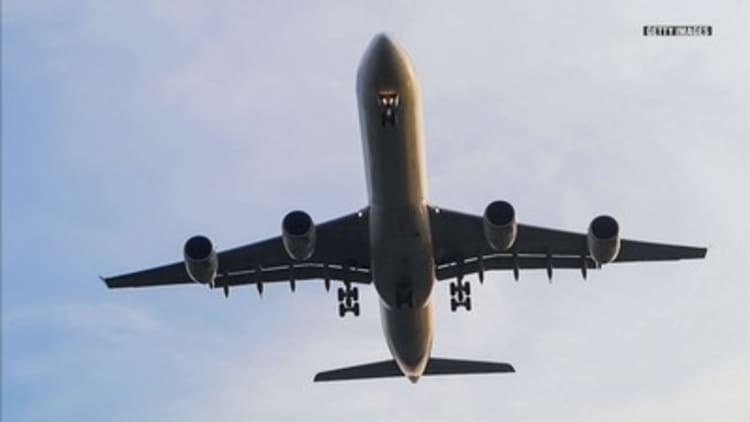
With "robo-taxis" being tested without drivers in cities around the world, you knew it would only be a matter of time until someone suggested a commercial airplane could fly without a pilot.
While there could be enormous cost savings for airlines, and perhaps consumers, would anyone want to take a flight without a pilot in the cockpit?
No.
At least that's the conclusion reached by a new survey of 8,000 people in the U.S., Europe and Australia. UBS commissioned the survey in June and found just 17 percent would be willing to fly on a pilotless plane. By comparison, more than half said they would be unlikely to buy a ticket.
Considering every person has their price where something is so cheap they can't pass up the offer, UBS asked consumers how much cheaper a pilotless flight ticket would need to be for them to get on board without a crew in the cockpit.
"Perhaps surprisingly, half the respondents said they would not buy the pilotless ticket even if it was cheaper," said UBS Evidence Lab report.
The results come at a time when airlines around the world face a shortage of pilots due to the addition of flights and the fact many pilots are retiring. That combination is driving up costs and forcing airlines to pay more to keep pilots and to attract new ones.
In fact, airlines in China and the Middle East, where the airline industry is growing far faster than in Europe and the U.S., are readily paying hefty bonuses to hire pilots.
UBS estimates the industry could save $35 billion and pass the savings along to passengers through lower fares if airlines could operate pilotless planes. The technology to do so could be developed by 2025, according to the report.
Still, passengers and regulators would have to become comfortable with the idea of nobody sitting in the cockpit, which would be a dramatic change from the current rules for much of the world, which require at least two people in the cockpit at all times.
UBS researchers admit cargo planes would be more likely than commercial airlines to try pilotless flights.
"Unlike passengers, cargo is not concerned with the status of its pilots (human or autonomous). For this reason, pilotless cargo aircraft may happen more swiftly than for passengers," the report concluded.


